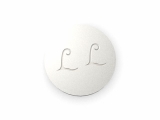Does erectile dysfunction affect desire
Sexual desire is an important part of a full and satisfying life, and it can be influenced by a variety of factors, including age, health, and hormones. However, one of the most common factors that can impact sexual desire is erectile dysfunction (ED).
ED is a condition that affects millions of men worldwide, and it is characterized by the inability to achieve or maintain an erection sufficient for sexual activity. While ED is often thought of as a physical problem, its psychological effects can be just as significant. In fact, recent research has found that ED can significantly impact sexual desire, reducing both the frequency and intensity of sexual thoughts and fantasies.
Understanding the relationship between ED and sexual desire is crucial for both individuals and healthcare providers, as it can help identify appropriate treatment options and improve overall sexual satisfaction and quality of life. In this article, we will explore the facts and findings related to the impact of ED on sexual desire.
The Connection between Erectile Dysfunction and Sexual Desire
What is Erectile Dysfunction?
Erectile Dysfunction (ED) is a common condition in which a man has difficulty getting or keeping an erection firm enough for sexual intercourse. It can be caused by a variety of factors, including physical, psychological and lifestyle issues.
How does Erectile Dysfunction Impact Sexual Desire?
ED can have a significant impact on a man's sexual desire. When a man experiences difficulty achieving or maintaining an erection, it can create performance anxiety and feelings of inadequacy. This can lead to a decrease in sexual desire and avoidance of sexual activity altogether.
Additionally, ED can impact the sexual desire of a man's partner. If a man is unable to achieve or maintain an erection, his partner may also begin to feel inadequate or undesirable. This can lead to a decrease in sexual desire and intimacy between the partners.
Is there a Strong Connection between Erectile Dysfunction and Sexual Desire?
While there is a strong correlation between ED and sexual desire, it is important to note that they are not always directly related. A man may experience a decrease in sexual desire for a variety of reasons, such as stress, depression, or relationship issues. However, ED can often exacerbate these issues and make it more difficult to address them.
It is essential for men experiencing ED to seek medical treatment to not only address the physical aspect but also to help address any underlying psychological or emotional factors that may be contributing to their condition. Open communication with their partner and seeking professional counseling can also help to improve sexual desire and intimacy.
The Psychological Effects of Erectile Dysfunction on Sexual Desire
Decreased Self-Esteem and Confidence
Erectile dysfunction can have a significant impact on an individual's self-esteem and confidence levels. When a man is unable to achieve or maintain an erection, he may feel inadequate and insecure in his abilities as a sexual partner. This can lead to feelings of shame and guilt, and may even contribute to depression and anxiety.
Increased Anxiety and Stress
Erectile dysfunction can also cause a great deal of anxiety and stress, both in and out of the bedroom. Men may worry about their ability to perform sexually, causing them to avoid sexual encounters altogether. This can lead to a cycle of fear and avoidance, where sexual desire and intimacy are avoided altogether.
Relationship Conflicts
Erectile dysfunction can strain relationships and lead to conflicts between partners. Couples may struggle to communicate openly about sexual issues, leading to frustration and resentment. This can also lead to a decrease in sexual desire and intimacy, as the emotional connection between partners breaks down.
Sexual Desire and Erectile Dysfunction
While erectile dysfunction can have a negative impact on sexual desire, it is important to remember that the two are not always directly linked. Men may still experience sexual desire even if they are unable to achieve or maintain an erection. Similarly, some men may be able to achieve and maintain an erection but still have a low sexual desire. Understanding the complex relationship between sexual desire and erectile dysfunction is crucial for treating and managing these issues.
The Physical Impact of Erectile Dysfunction on Sexual Desire
Reduced Blood Flow
Erectile dysfunction occurs when blood flow to the penis is reduced, which can make it difficult or impossible to achieve and maintain an erection. This reduction in blood flow can also have a negative impact on sexual desire. When sexual arousal occurs, the body releases chemicals that cause blood vessels in the penis to dilate, allowing for increased blood flow. However, if blood flow is already restricted due to erectile dysfunction, the body may not be able to achieve and sustain an erection, which can decrease sexual desire.
Hormonal Imbalances
Erectile dysfunction can also be caused by hormonal imbalances, such as low testosterone levels. Testosterone is a hormone that plays a vital role in sexual desire and arousal. When testosterone levels are low, sexual desire can decrease, which can make it difficult to achieve and maintain an erection. Additionally, some medications used to treat erectile dysfunction can also have a negative impact on testosterone levels, further reducing sexual desire and contributing to erectile dysfunction.
Psychological Effects
Erectile dysfunction can have a negative impact on a person's self-esteem, confidence, and overall mental health, which can further reduce sexual desire. Anxiety, depression, and stress are common psychological factors that can contribute to erectile dysfunction and decrease sexual desire. Additionally, the frustration and disappointment of not being able to achieve an erection can create a negative feedback loop, leading to further anxiety and decreased sexual desire.
Conclusion
Overall, the physical impact of erectile dysfunction on sexual desire can be significant. Reduced blood flow, hormonal imbalances, and psychological effects can all contribute to a decrease in sexual desire, making it difficult to achieve and maintain an erection. Understanding the physical causes of erectile dysfunction and seeking treatment can help improve sexual desire and overall sexual health.
How Treatments of Erectile Dysfunction Affect Sexual Desire
Medications
One common treatment for erectile dysfunction is medication, which works by increasing blood flow to the penis. While these drugs can improve erections, they may not necessarily increase sexual desire. In fact, some men experience a decrease in libido or a lack of interest in sex while taking these medications.
It's important to note that not all men will experience these side effects, and some may even find that their sexual desire improves once their erectile dysfunction is effectively treated. However, if you do notice a change in your sexual desire while taking medication for ED, it's important to speak with your doctor.
Penile Injections and Implants
Penile injections and implants are other treatment options for erectile dysfunction, but they may also have an impact on sexual desire. While injections can improve erections, they may not necessarily increase libido. Similarly, penile implants can improve the physical ability to have sex, but they may not address underlying issues with sexual desire.
Again, it's important to discuss any changes in sexual desire with your doctor if you are undergoing treatment for erectile dysfunction. They may be able to recommend additional steps you can take to improve your sexual health and wellbeing.
Psychological Treatment
In some cases, erectile dysfunction can be caused by psychological factors such as stress, anxiety, or depression. In these cases, psychological treatment may be recommended alongside other treatments for ED. This can include strategies such as talk therapy, cognitive behavioral therapy, or couples therapy.
While this type of treatment does not directly address physical symptoms of erectile dysfunction, it may have a positive impact on sexual desire and overall sexual satisfaction. By identifying and addressing underlying psychological factors, men may find that their sexual desire increases naturally over time.
- Overall, the impact of treatments for erectile dysfunction on sexual desire can vary from person to person.
- Some treatments may have a negative impact on sexual desire, while others may have no effect or even improve sexual desire over time.
- If you have concerns about changes in your sexual desire while undergoing treatment for ED, it's important to discuss these with your doctor.
How Change of Lifestyle and Habits Can Help in Erectile Dysfunction and Sexual Desire
Exercise and Physical Activity
Regular exercise and physical activity are beneficial for overall health and can help improve erectile dysfunction and sexual desire. Aerobic exercise, such as running or cycling, can increase blood flow and reduce stress, which can contribute to improved sexual function. Resistance training can also be helpful in improving muscle mass, which can lead to increased testosterone levels and improved sexual function.
Dietary Changes
Making dietary changes can also play a role in improving erectile dysfunction and sexual desire. Eating a diet rich in fruits, vegetables, whole grains, lean proteins, and healthy fats can help reduce the risk of cardiovascular disease, which is a common cause of erectile dysfunction. Additionally, certain foods, such as those high in zinc and vitamin D, can help improve testosterone levels and improve sexual function.
Quit Smoking and Limit Alcohol Consumption
Smoking can damage blood vessels and reduce blood flow, which can contribute to erectile dysfunction. Quitting smoking can therefore be an important step in improving sexual function. Additionally, excessive alcohol consumption can interfere with the ability to achieve and maintain an erection. Limiting alcohol consumption can help improve sexual function.
Reduce Stress
Stress can contribute to erectile dysfunction and decreased sexual desire. Reducing stress through relaxation techniques such as meditation or yoga, or through engaging in enjoyable activities, can help improve sexual function. Seeking counseling or therapy can also be helpful in learning strategies for reducing stress.
Get Enough Sleep
Getting enough sleep is important for overall health and can also play a role in improving sexual function. Sleep deprivation can contribute to decreased testosterone levels and increased stress, both of which can impact sexual desire and erectile function. Aim for 7-9 hours of sleep per night to help improve sexual function.
- Overall, making changes to your lifestyle and habits can play a significant role in improving erectile dysfunction and sexual desire.
- Exercise regularly, eat a healthy diet, quit smoking, limit alcohol consumption, reduce stress, and get enough sleep to improve sexual function.
Talking to Your Partner about Erectile Dysfunction and Sexual Desire
Be Open and Honest
When talking to your partner about erectile dysfunction and sexual desire, it's important to be open and honest. Explain how you're feeling and what you're experiencing so that your partner can understand better.
Ask for Support
It's okay to ask for support from your partner. Let them know what you need from them, whether it's emotional support or physical touch. Encourage your partner to express their feelings as well, so that you can both work together to find solutions.
Discuss Treatment Options
There are many treatment options available for erectile dysfunction, including medication, therapy, and lifestyle changes. Discuss these options with your partner and make a plan together that works for both of you.
Communicate Your Sexual Desires and Needs
Erectile dysfunction doesn't have to mean the end of intimacy. Talk to your partner about your sexual desires and needs, and explore other ways to enjoy each other. Try new things and be open to different experiences.
Be Patient and Understanding
Remember that erectile dysfunction can be frustrating and difficult for both partners. Be patient and understanding with each other, and don't blame each other for the problem. Work together as a team to find solutions and keep the lines of communication open.
Follow us on Twitter @Pharmaceuticals #Pharmacy
Subscribe on YouTube @PharmaceuticalsYouTube





Be the first to comment on "Does erectile dysfunction affect desire"